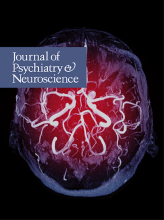Abstract
Background: Disturbances in evidence gathering and disconfirmatory evidence integration have been associated with the presence of or propensity for delusions. Previous evidence suggests that these 2 types of reasoning bias might be differentially affected by antipsychotic medication. We aimed to investigate the effects of a dopaminergic agonist (L-dopa) and a dopaminergic antagonist (haloperidol) on evidence gathering and disconfirmatory evidence integration after single-dose administration in healthy individuals.
Methods: The study used a randomized, double-blind, placebo-controlled, 3-way crossover design. Participants were healthy individuals aged 18–40 years. We administered a new data-gathering task designed to increase sensitivity to change compared with traditional tasks. The Bias Against Disconfirmatory Evidence (BADE) task was used as a measure of disconfirmatory evidence integration.
Results: We included 30 individuals in our study. In the data-gathering task, dopaminergic modulation had no significant effect on the amount of evidence gathered before reaching a decision. In contrast, the ability of participants to integrate disconfirmatory evidence showed a significant linear dopaminergic modulation pattern (highest with haloperidol, intermediate with placebo, lowest with L-dopa), with the difference between haloperidol and L-dopa marginally reaching significance.
Limitations: Although the doses used for haloperidol and L-dopa were similar to those used in previous studies, drug plasma level measurements would have added to the validity of findings.
Conclusion: Evidence gathering and disconfirmatory evidence integration might be differentially influenced by dopaminergic agents. Our findings are in support of a dual-disturbance account of delusions and provide a plausible neurobiological basis for the use of interventions targeted at improving reasoning biases as an adjunctive treatment in patients with psychotic disorders.
- Received October 17, 2014.
- Revision received January 16, 2015.
- Accepted February 27, 2015.






